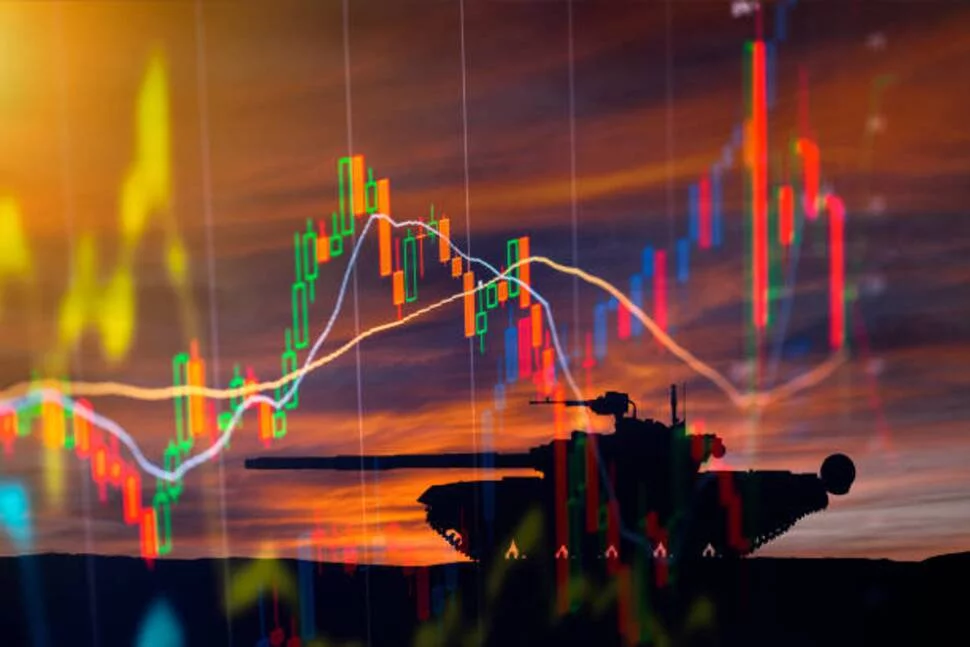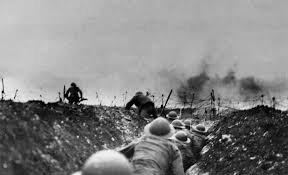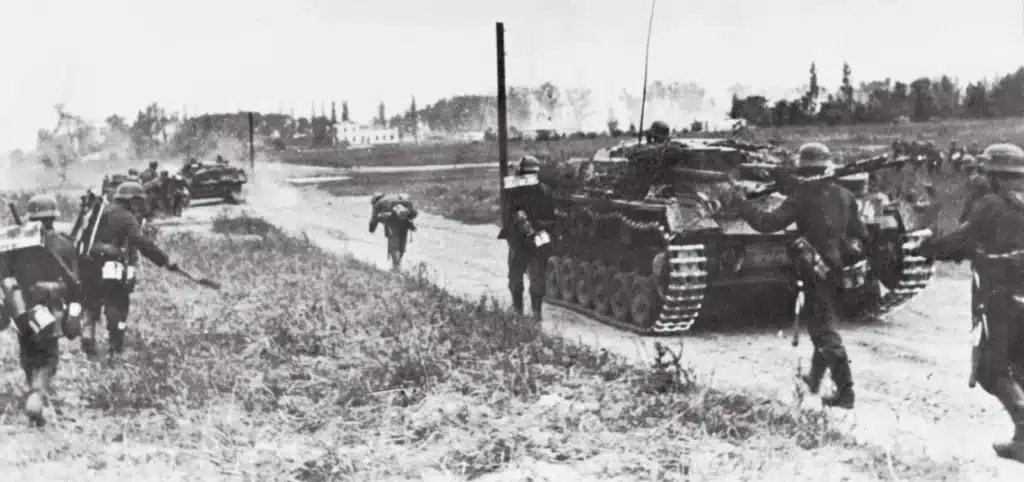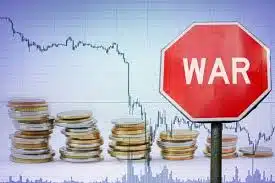The stock market is one of the most important parts of the complicated world of global finance. It shows and affects how the economy is doing.
The stock market is where people can buy and sell shares of publicly owned companies. It is very important for raising money, making investments, and helping the economy grow.
Still, you can’t say for sure what it will do next, especially when war is involved. With all of its different forms and effects, war changes more than just the political scene; it also sends shockwaves through the financial markets.
Wars throughout history, like the World Wars, and current battles, like the Gulf Wars and the War on Terror, have had deep and far-reaching effects on the economy.
This piece aims to explain the complicated link between war and the stock market by looking at both the direct and indirect ways that war changes the way markets behave.
Join us as we look at how war affects stock prices, investor trust, and the stability of the market as a whole. This will shed light on the complicated relationship between war and the financial markets.
Historical Context: War and Market Reactions

The way war and the stock market have affected each other in the past shows a trend of big changes and lasting effects.
During World War I,

the global stock markets fell at first because of the chaos and unpredictability that the war caused, but they soon rose again as the war effort pushed industrial production and technological progress.
In contrast, World War II

had a more complex impact. While the early years saw unstable markets and tough economic times, the eventual preparations for war led to economic booms in the US and other Allies thanks to higher military spending and production during the war.
During the Cold War, there was a different kind of market volatility that was caused by ideological fights and geopolitical tensions rather than direct war.
Market trends were changed by the arms race and the economic policies that followed, like bigger defense spending and smart investments.
Key events like the Cuban Missile Crisis and different proxy wars shook the market for a while, but they didn’t cause long-lasting economic downturns.
Instead, the market got used to operating in a world where volatility is always present.
Modern wars like the Gulf Wars and the War on Terror have shown how globalized financial markets respond to ongoing unrest in the last few decades.
When Iraq invaded Kuwait in 1990, the first step in the Gulf Wars, oil prices went through the roof and the market became very unstable. This showed how sensitive the market was to problems with energy sources.
There was a lot of confusion for a long time because of the War on Terror. This uncertainty affected global markets by making people more worried about security, changing how much was spent on defense, and raising geopolitical risk.
Every one of these wars has shown how the stock market reacts to both the short-term effects of war and the long-term changes in politics and the economy.
Mechanisms of Impact
There are many ways that war affects the stock market. These include economic instability, changes in fiscal policy, and problems with trade around the world.
When there is a conflict, there is often instant and noticeable economic uncertainty and market volatility. The way investors think and feel is very important.
Traders’ reactions to news and predictions about how the economy might react can cause sharp drops in the market.
For example, when military operations or escalations are announced, they can cause panic selling. This happened in the early stages of the Gulf War in 1990, when the uncertainty about oil supply disruptions caused big changes in the market.
During wartime, government spending and fiscal measures also have a big effect on markets.
Usually, when defense spending goes up, certain businesses, like defense and aerospace, get more business, which drives up stock prices in those areas.
But this kind of spending usually means more taxes or a bigger national debt, which can have mixed effects on the economy as a whole.
For example, during World War II, the government put a lot of money into the war effort, which helped the economy grow and created jobs, but it also caused the government’s debt to rise and required changes to its budget.
Global trade and problems in the supply chain are two other important areas of influence. Wars can have a big impact on important businesses by messing up supply chains and changing the way trade works.
Energy markets are especially vulnerable because wars in oil-producing areas often cause oil prices to rise, which can have an impact on markets around the world and on inflation rates.
In the same way, wars can stop the flow of goods, which can cause shortages and price hikes.
Wars can also have a big effect on international trade deals because they can change trade routes and alliances, which can change the way the world trades and keep the economy stable.
One example of how geopolitical tensions can affect international markets and trade agreements is how the ongoing war in Ukraine has cut off grain supplies and raised food prices around the world.
Sector-Specific Effects
Different parts of the stock market are affected by war in different ways, which shows how complicated the economy is when there is conflict.
Wars usually cause a big rise in demand in the defense and aerospace businesses because governments spend more on the military to support the war.
Companies in these areas may see big short-term gains in their stock prices because of this boost.
Long-term effects after a war can also be good, since military progress and greater abilities lead to ongoing security contracts and new technologies.
It’s especially bad for the oil and commodity markets when war breaks out. There is a strong link between oil costs and conflicts, especially ones that happen in oil-rich areas.
Wars can make people worry about not having enough supplies, which can drive up the price of oil and, in turn, affect the stock market as a whole.
In the same way, people often buy more gold and other valuable metals when they think of them as safe investments during times of uncertainty.
Unstable supply lines and changes in global demand can also cause other goods to go up and down in price.
The needs of modern fighting are having a bigger impact on the technology and communication sectors.
During conflicts, governments and businesses spend a lot of money to protect assets and get strategic benefits. This makes the need for better cybersecurity and more advanced defense technologies go through the roof.
This means that there is more demand for protection and defense technology companies, which changes where investments are made and how new technologies are made.
During wartime, the consumer goods and services areas are also affected in big ways. People’s buying habits often change when they are worried about the economy or can’t afford to spend as much.
People often put off buying things they don’t need, which hurts retail markets, especially those that sell expensive goods.
However, demand may stay steady in some areas, such as basic consumer staples. This is because people are changing their goals when things are uncertain.
Regional and Global Effects

The effects of war on the stock market are very different in developed economies compared to emerging markets and between developed countries and domestic markets.
In the United States, the stock market’s response often depends on how the country is involved in the war.
Countries that are directly involved in a war may see more market volatility and investor fear, while countries that aren’t as involved may see indirect effects like trade problems or changes in product prices.
Different countries’ markets can respond in different ways to global trade, based on how stable their economies are.
Emerging markets are often more affected by war shocks because they depend on foreign investment and are more likely to have quick outflows of capital.
Even though developed countries are also affected, their financial systems are usually stronger and they are better able to handle and recover from economic problems.
Market stability and geopolitical ties go hand in hand. ties and trade blocs are very important for keeping the economy from being too badly affected by war.
Strong partnerships can help and stabilize economies by coordinating policies and sharing resources, which can lessen some of the bad effects on the markets of member countries.
On the other hand, disagreements that make these partnerships weaker or less stable can make the economy and markets less stable. Tensions in geopolitics also have a big effect on currency markets and forex trade.
Wars can cause big changes in the value of currencies as buyers look for safe havens or respond to changes in the economy.
For example, when there is a war, the currencies of countries that are seen as safe havens, like the US dollar or the Swiss franc, tend to go up in value, while the currencies of countries that are directly involved in or close to the war may go down in value.
These changes in currencies can have a big impact on the flow of international trade and investment, which can make the global market even less stable.
Long-Term Economic Consequences
The war’s long-term effects on the stock market are deep and complex. They include the recovery from the war, market stabilization, rebuilding efforts, and investment possibilities.
Historically, patterns of recovery after war have shown that markets often stabilize and recover as countries move toward peace and start rebuilding. During the first few months after a war, markets often suffer from the direct effects of the fighting.
It is very important for the government to get involved in this process of stabilization. Policies like fiscal stimulus, monetary easing, and targeted investments in key sectors help to restore investor trust and market stability.
For example, after World War II, the government spent a lot of money on programs like the Marshall Plan to rebuild Europe. These programs not only helped the economy revive, but they also made global markets stronger.
As countries heal from the damage of war, they have chances to rebuild and make investments, which opens up new ways for the economy to grow.
Infrastructure projects, which are often a big part of rebuilding after a war, create a lot of market possibilities and boost demand in areas like technology, materials, and construction.
These projects not only fix up the physical infrastructure, but they also set the stage for long-term growth in the economy.
Also, bringing back foreign capital becomes an important part of the recovery process. As countries get better, foreign investors are often drawn in by the chance to make a lot of money.
This causes a lot of foreign direct investment (FDI) and portfolio investments. This influx of money helps markets grow and develop even more, which makes it easier for war-torn countries to rejoin the global financial system.
So, the time after a war can be hard, but it can also be a time of big changes and opportunities for the economy, as countries rebuild and get back into the global market.
Investor Strategies During War

During wartime, navigating the stock market needs smart plans based on risk management, diversification, market analysis, and moral concerns.
As a way to protect their portfolios from the volatility that wars bring, investors often buy safe assets and avoid taking risks.
People often choose safe-haven investments like gold, government bonds, and some currencies, like the US dollar and Swiss franc, because they are stable during times of trouble.
Another important strategy is to diversify your investments. Spreading your money across different industries and regions can lower your risks and protect you from market downturns in conflict-affected areas.
During wars, it’s very important to look at market signs and indicators because they can show you how the market might move.
Changes in geopolitics, changes in defense spending, and economic bans are all important things to keep an eye on because they can have big effects on the market right away.
In this situation, historical data is very helpful. By looking at how markets have reacted to past conflicts, investors can make more accurate predictions about how markets will act in the future.
One way to learn about what to expect and how to place your investments properly is to look at how the market responded to the Gulf Wars or the War on Terror.
Social duty and ethical concerns also play a big role in how investors choose to act during wartime.
Even though investing in defense stocks could be profitable, it can be unethical for some people who don’t like making money off of war.
Environmental, Social, and Governance (ESG) investing is becoming more popular, which changes how people choose to spend their money even more.
ESG investing makes investors think about how their investments affect society and the environment as a whole. This makes many investors choose companies with strong ethical practices and good social contributions.
Investors are trying to match their portfolios with their values more and more, even when war is looming and there is a lot of uncertainty. They want to balance financial returns with moral concerns.
Case Studies and Real-World Examples
By looking at individual wars, we can learn a lot about how they can affect the stock market and the economy as a whole.
The Iraq War, for example, had big effects on the economy and the stock market.
At the start of the conflict in 2003, global stock markets were very volatile and fell sharply as investors tried to figure out how long the war would last and how it would affect oil supplies.
In the long run, the war made oil prices go up, which sped up inflation around the world and hurt many industries that depend on fixed energy costs.
The unstable economy in the area made it harder to spend and slowed down economic growth, which had effects on economies around the world.
The fight in Ukraine is another powerful example of how modern wars affect markets.
As soon as Russia invaded Ukraine in 2022, markets around the world fell because people were afraid of wider geopolitical instability and problems in important areas like agricultural and energy.
Energy prices went through the roof because of sanctions against Russia, especially in Europe, which relied heavily on Russian gas.
Also, Ukraine, which exports a lot of grain, had problems with its farming industry, which caused food shortages and price hikes around the world.
The war made it clear how linked the world’s economies are and how easily markets can be affected by political unrest.
The Syrian Civil War, which is now in its tenth year, shows how long-lasting the effects are on markets in the area and on the economy as a whole.
The war has destroyed Syria’s economy, causing major damage to infrastructure and the collapse of local businesses. It has also caused a huge refugee crisis that has put a strain on the economies of nearby countries.
The flood of refugees has had mixed effects on the economies of the countries that have taken them in. It has made the job market tighter, but it has also helped some industries grow by increasing demand for goods and services.
Long-term effects on the Middle East economy are big, as instability in the area keeps foreign investors away and makes it harder to get the economy back on track.
These case studies show how war affects economies and stock markets in many different ways. They stress the need for smart business strategies during times of conflict.
Conclusion: How Does War Affect the Stock Market
To sum up, the complicated link between war and the stock market includes many causes and outcomes, ranging from short-term market volatility and investor emotions to long-term economic recovery and effects that are specific to certain sectors.
Wars lead to more spending by the government, problems in the supply chain, and changes in economic policy, all of which have an effect on the stock market.
Conflicts in the past, like the World Wars and more recent ones, like the Iraq War and the Ukraine Conflict, show how markets respond to the risks and unknowns that come with geopolitical unrest.
To accurately guess future market movements and trends during times of conflict, you need to have a strong understanding of these patterns and be aware of key indicators and past examples.
Understanding the link between war and the stock market is important for investors who want to make smart decisions, handle risks, and find chances in the chaos.
As global tensions and conflicts change, it’s important to stay educated and flexible in order to make smart investments in a world where war is still having an effect on the markets.
FAQs: How Does War Affect the Stock Market
How does war typically affect stock markets?
War typically causes increased volatility and uncertainty in stock markets, leading to sharp declines and erratic price movements due to investor fear and risk aversion.
Which sectors are most impacted by war?
The most impacted sectors include defense and aerospace, energy and commodities, technology and communication, and consumer goods and services.
How can investors protect their portfolios during times of war?
Investors can protect their portfolios by diversifying investments, focusing on safe-haven assets like gold and government bonds, and adopting risk-averse strategies.
Are there any long-term benefits to the stock market from war?
Long-term benefits can include increased government spending on infrastructure and defense, which may stimulate economic growth and create investment opportunities post-conflict.
What are the ethical considerations of investing during conflicts?
Ethical considerations involve the morality of profiting from defense stocks, the social impact of investments, and the importance of ESG (Environmental, Social, Governance) principles in guiding investment decisions.